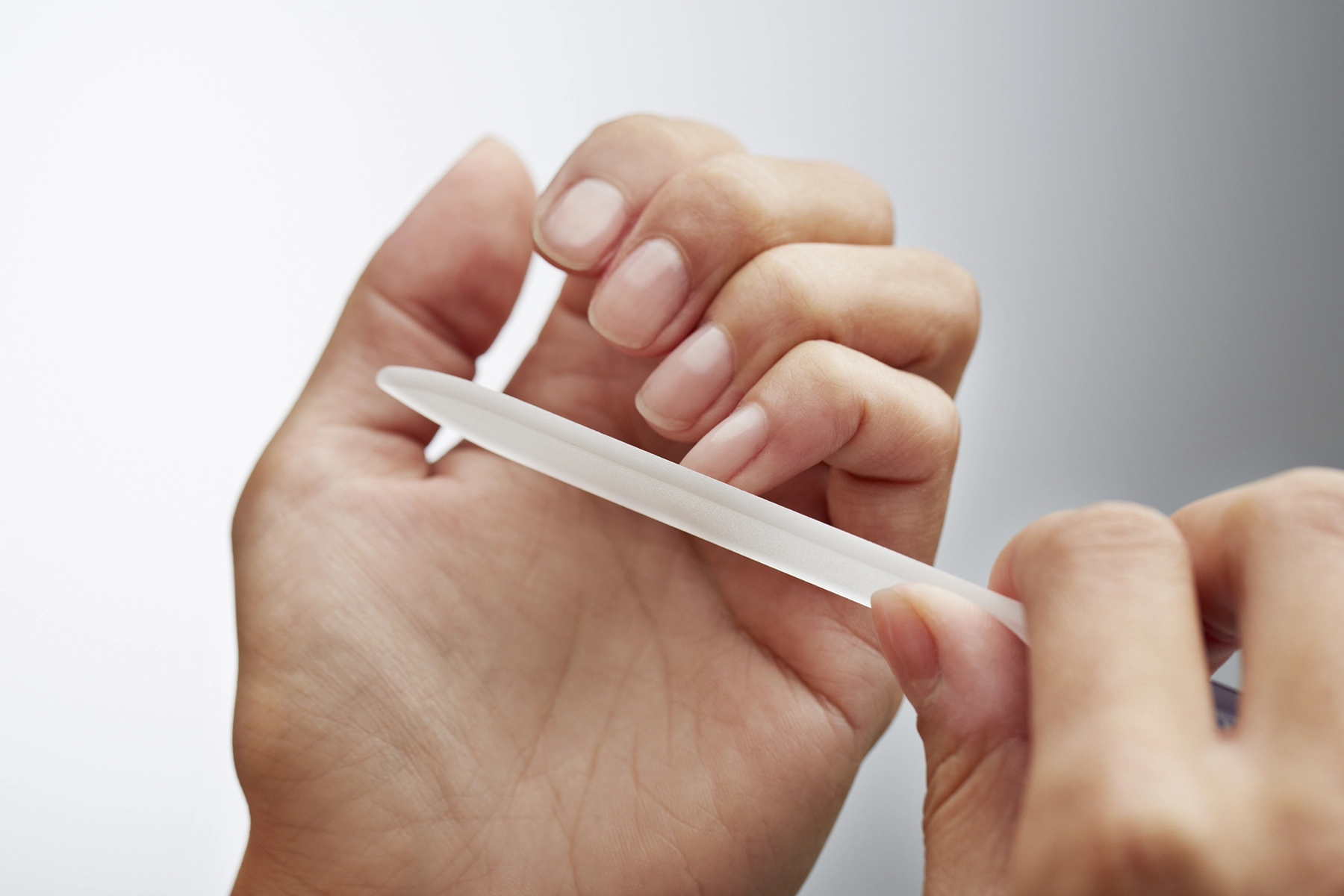How Can I Get Healthier Nails?

Are you frustrated by fingernails that crack, peel, or split? Weak, unhealthy nails are more than an unsightly nuisance that interferes with your daily tasks. Brian Morrison, M.D., a dermatologist with the University of Miami Health System, says this condition can be cause for concern.
What are some reasons fingernails peel or split?
Dr. Morrison: The most common cause is called brittle nail disease and can be associated with normal aging (especially the ridges that run lengthwise along the nail plate). Excessive hand washing often makes it worse. Repeated wet-dry exposure is terrible for nails and has been worse for many people since the pandemic.
Exposure to chemicals such as cleaning products, hand sanitizer, and nail polish/gel/dip all exacerbate this issue.
Inflammatory nail disorders such as psoriasis and lichen planus can cause nail fragility, but from a dermatologist’s perspective, they often look different and more serious. Lichen planus is particularly important; if untreated, the nail can permanently scar, and patients may lose the nail. This diagnosis can be made clinically by a dermatologist but might require a biopsy.
Gel manicures are popular; how do they affect nail health?
Dr. Morrison: Gel polish can be problematic for nails.
It contains a chemical called methacrylate, a common allergen that can cause contact dermatitis and subsequent lifting of the nail off the nail bed. It can also cause itching of the adjacent nail folds. Removing polish, especially dip and gel polish, can also damage the nail plate and result in lamellar splitting or peeling of the layers that make up the nail plate. As long as gel polish is used, the problem will persist. Avoiding gel manicures and getting treated by a dermatologist helps the nails improve quicker.
Would you recommend wearing a clear polish to harden and protect the nails?
Dr. Morrison: Nail hardeners can be very bad for nails, especially if they are formaldehyde-containing formulations. Initially, these hardeners help, but they then result in worsening, crumbling nails. They should be avoided at all costs. If you do use a nail hardener, choose one without formaldehyde and wear it for short periods. It is also important to minimize exposure to nail polish removers as they make the condition worse.
Do supplements such as biotin and collagen strengthen nails and encourage growth?
Dr. Morrison: There is no evidence that collagen works. Biotin has minimal data on its use, but it might be beneficial. There are some oral prescription medications that may help the nails grow more quickly.
If the fingernails are chronically split or peeled, is it possible to grow them out past the nail bed?
Dr. Morrison: First, people should avoid cleaning under the nails, filing them, or manipulating them. Minimal trimming to keep the nails from becoming too long is okay, but most of the time, people only make their nails worse through excessive manipulation.
Time is the only thing that allows nails to grow. If one area consistently splits and the split involves the entire length of the nail plate, it requires prompt evaluation. A dermatologist can examine the area for a nail tumor (either benign or malignant) or inflammatory nail disease (lichen planus).
Nail tumors usually only involve one finger or toe and can appear as a brown/black streak in the nail, splitting the entire length of the nail or lifting the nail. Patients with nail psoriasis and lichen planus can activate the disease if they clean their nails aggressively. Nails that are lifted, a condition known as onycholysis, are prone to infections, especially bacteria. Soaking the nails in half water and half vinegar for short periods helps prevent bacterial overgrowth.
When should a person see a dermatologist about their fingernails?
Dr. Morrison: They should see someone if they have persistent, unusual nail changes that do not respond to behavior modification. Many things can go wrong with the nails, and people tend to seek care in the late stages of the disease. They also assume everything is a “fungus,” which can delay diagnosis and care. For these reasons, I urge early evaluation.
I encourage anyone concerned about their nail health to see a dermatologist. In the meantime, I recommend caring for brittle nails using these guidelines:
- Avoid long-term exposure to water.
- Avoid washing the fingernails too aggressively.
- Wear gloves with cotton underneath your vinyl gloves for wet work.
- Wear cotton gloves alone for dry work.
- Avoid overusing nail polish remover. Look for polish removers containing acetate instead of acetone.
- Do not over-manicure your fingernails.
To protect brittle nails, wear formaldehyde-free nail enamel. Remember – wearing nail hardening enamel too often can make brittle nails worse.
- Do not remove or manipulate the cuticles, and avoid cuticle remover solutions, as they can damage the nail plate.
- Keep the fingernails trimmed short.
- Avoid wearing acrylic or artificial nails.
- Avoid hand sanitizers and soaps with triclosan.
To improve the health of brittle nails, use this routine:
- Once a week, soak the nails in lukewarm water for 15 minutes, then massage the nails with olive, rice bran, or jojoba oil.
- Apply an emollient such as Vaseline or coconut oil daily.
- Apply a formaldehyde-free base coat, nail polish, and a hard top coat to create a splint-like effect that strengthens the nail.
Q&A compiled by Nancy Moreland, a UHealth Collective contributor.
Tags: Dr. Brian Morrison, fingernail care, healthy fingernails, skin care in Miami
